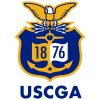Senior Projects
Cyber Systems
During their senior year, Cyber Systems (CySys) cadets embark upon a Capstone Experience through a Capstone Project, Advanced Research Project, or Senior Thesis.
Teams of typically three or four cadets collaborate on a real-world Coast Guard cyber problem. Working with faculty and Coast Guard units, cadets develop a solution that meets the Coast Guard’s needs.
Classroom discussions primarily cover current industry and Coast Guard standards of project management and systems engineering while emphasizing students’ public speaking skills. Cadets take field trips to Coast Guard cyber units to experience jobs they may be assigned to as junior officers.
At the end of each semester, cadets summarize their work in a formal research paper and deliver a presentation outlining their results.
This CySys project is a culminating experience of the major that prepares students with the technical, conceptual, and practical skills needed for a professional career as a cyber officer (and beyond).
Recent Cyber Systems Capstone Projects
Academy cadets in the Cyber Systems major are able to conduct a year long capstone research project within the Department tackling a cyber-specific problem or venture out joining a team anywhere on campus providing cyber expertise to other projects at CGA. Here are a few recent Cyber Systems Capstone Experience projects:
Seaity: Virtual Reality Experience of Navigation Rules of The Road
While underway, graduates of the United States Coast Guard Academy who become Cuttermen are expected to make quick decisions in line with the Rules of the Road (ROTR) during high stress evolutions. Seaity’s goals are to bring visually realistic waterway scenarios to cadets in the classroom and to develop future officers who are more comfortable, confident, and knowledgeable on the water. Seaity has achieved this goal by developing a virtual reality application that runs on the Meta Quest 2, an inexpensive and easy to use stand-alone virtual reality headset. In the Seaity application, users can choose from a variety of ROTR scenarios and work through them in virtual reality. In its current state, the product contains rudimentary functions, in which the user answers questions and is then shown the correct action of the vessel. Functionality can be expanded in the future. Future versions may contain more scenarios to choose from, give the user more control over the scenario, combine multiple scenarios into one complex scenario, and give end users the ability to create unique levels from within the application.
Using Machine Learning to Detect Military Insignias
Technology is quickly evolving, allowing people to document daily life through pictures on their phones or cameras. These pictures are being shared with the world through internet sources like Google Images, Meta, Instagram, etc. These photographs contain specific data when taken, which we call metadata. Details like time, location, resolution, and many more are stored as metadata for each picture captured. Our team is creating a piece of software that will take advantage of the data captured by the photograph to locate when and where it was taken. From there we want to harness machine learning so that this software will be able to detect and identify certain military insignias within a chosen picture. The primary language we used is Python as it is the most compatible with most image recognition software packages. While using opensource code to build the foundation of our image recognition software, we will tailor the software to be able to run autonomously in the background to limit the need for personal engagement.
Maritime Electronics Network Device Detection Aboard T/V SHUMAN
The overall goal of this project is to leverage the Training Vessel (T/V) SHUMAN to learn more about marine electronics and how we can potentially make the technology on-board a vessel more secure. Through research of the CAN protocol and NMEA 2000, we found that creating a program that shows a user what devices are on the ship’s maritime network would teach us the most about the communication between technology on-board a vessel, and it could be a potential first step towards a program that maps a ship’s network and detects false data or devices that are not intended to be on the network. We fully designed and implemented program to examine all packets traversing the NMEA 2000 network on a vessel in real time, store the data messages on a SQL server, and utilize that information to list all connected devices as well as indicate all devices that had been removed or added when compared to a baseline data set.
Cyber Wargaming: Brining Tabletop Exercises to the Next Level of Realism and Value
This United States Coast Guard Academy (USCGA) Advanced Research Project evaluated the value of computer-assisted wargaming and how the United States Coast Guard (USCG) can utilize it as a key educational tool to personnel in meeting maritime workforce readiness standards. The first part of this project involved researching the value behind cyber wargaming to the USCG, and the second part of this project focused on successfully implementing the very first inaugural USCGA Wargaming class for the Spring of 2022 Semester. Classroom execution utilized the Center for Arctic Study and Policy (CASP) – USCGA contract with TurboTape Games, a Norwegian software-based company, to introduce USCG scenario-based wargames to students. As the cyber specialist and the technical-teacher-assistant for this course, I directly aided in training students with the technological development of game design, game execution, and assessment. This class was specifically utilized as a testing platform to better understand the value of wargaming in training future USCG officers on both their strategic decision-making and technical skillsets. The Homeland Security Operational Analysis Center (HSOAC) sponsored by RAND corporation recently published a report that conveys USCG revitalized interest in investing in wargaming and what the USCG should do moving forward to convey its importance and necessity.
